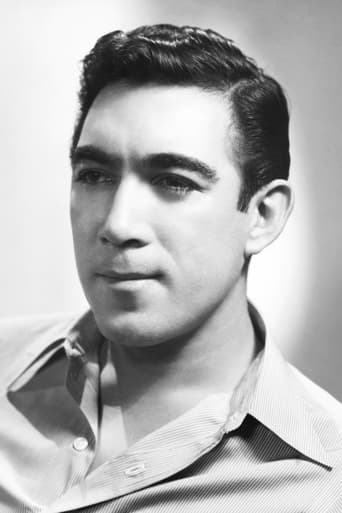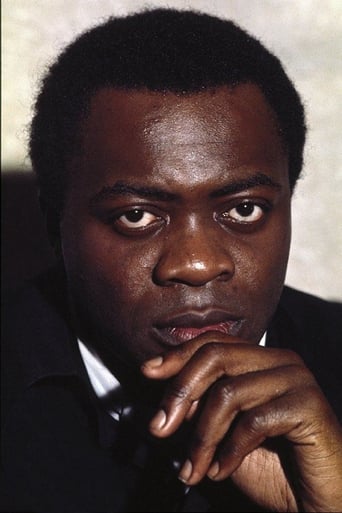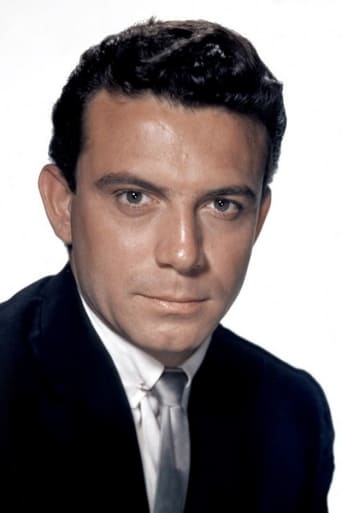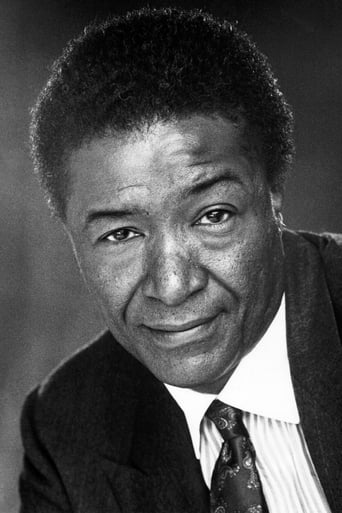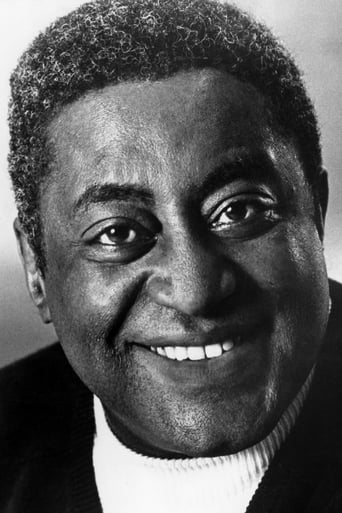Karry
Best movie of this year hands down!
Senteur
As somebody who had not heard any of this before, it became a curious phenomenon to sit and watch a film and slowly have the realities begin to click into place.
Aiden Melton
The storyline feels a little thin and moth-eaten in parts but this sequel is plenty of fun.
Uriah43
Three black hoodlums break into an apartment in Harlem where the Italian Mafia is collecting their proceeds for the week from their local black henchmen. A gunfight breaks out and all of the Mafia members are killed. Responding to the commotion two police officers are also gunned down by these same gunmen who manage to get away with $300,000 of the Mafia's money. This causes quite a stir within the Mafia as they fear losing control of Harlem to local black gangsters. So "Nick D'Salvio" (Anthony Franciosa) is sent into Harlem to find those responsible and make an example of them. Likewise, the police also want to bring these three men into custody for killing two of their own. So with both the Mafia and the NYPD looking for them the odds against any of these three crooks getting away are pretty slim. Especially since one of them, "Henry J. Jackson" (Antonio Fargas) makes no effort to hide his newly gotten wealth. Anyway, this film is notable for showing Harlem from a certain perspective that is not too kind. It is dirty and gloomy. But in the process it adds a sense of realism to everything. Both Anthony Quinn (as "Captain Mattelli") and Yaphet Kotto ("Lieutenant Pope") perform in an adequate manner in spite of the fact that their characters are obvious Hollywood creations. However, one thing I didn't care for was the last scene at the end which I thought was completely unnecessary. But that's just my opinion. In short, I rate this film as slightly above average.
mark.waltz
When some small-time Harlem crooks go up against the Mafia, racist slurs are shot out in addition to the excessive gunfire. The cops get involved, lots of people are killed, and nothing is resolved.This could actually be considered a "Northern" version of "In the Heat of the Night" where an Italian cop (Anthony Quinn) is paired with a black one (Yaphet Kotto) to solve this case where the mafia got an execution style assassination where $300,000 is stolen. The streets of Harlem are not going to be safe for anybody, and there seems to be more people involved in this heist than the ones first shown committing the caper on-screen.While there is some excellent location footage used for some fast-moving chase and fight sequences, the film is badly photographed so a lot of it appears either blurry or dark. A sequence at a club that appears to be involved in a full-on orgy is interrupted by the mobsters where none of the black people standing in the background do anything to keep Antonio Fargas from getting smashed to bits. It isn't the violence or even excessive foul language which makes this a mediocre blaxploitation film; It is the convoluted editing and transition between different characters either on the side of the law or the mafia, with some of the characters (particularly Quinn's) being rather undefined. Quinn's character goes through moments where he seems sympathetic to certain blacks, yet all of a sudden is violently racist. Kotto is definitely playing a character modeled after Sidney Poitier's Mr. Tibbs which makes him likable yet un-original.The scene where Fargas's wife is told of his death is probably one of the few excellent dramatic movies in the film. I give this an extra star above bomb because as a Harlem resident, I can see some areas of reality. Had this had a more personal story and less gruesome gratuitous violence, it would have been alright.
MBunge
When you hear people lamenting the lost cinema of the 1970s, Across 110th Street is the sort of film they wish was still being made. There's a breed of raw and bold storytelling at work here that's been worn down by the burden of ridiculous budgets and the pull of the lowest common denominator in modern Hollywood. This tale of cops, robbers and the Mob pulses with a sizzling racial undertone and hammers at you with the blunt realities of working poverty. This kind of film-making wants the audience to think AND feel while most other films try and fail at only one or the other.The movie begins across 110th street, the border separating Harlem from the rest of New York. A couple of white Mafiosos have come to count up and collect the Mob's cut of the money from the black-run rackets that still have to operate under La Cosa Nostra's thumb. When two black police officers show up outside the apartment where the money is being counted, the first thought is to pay them off. Then one of the "cops" pulls out a machine and everyone knows it's a robbery. Things go wrong and the two mobsters, three black gangsters and two cops end up dead, while the two robbers and their getaway driver barely managed to escape with $300,000 of Mafia money.Both sides of the law then set out to track down the robbers. Nick D'Salvio (Anthony Franciosa), the son-in-law of the Don, is tasked with getting the money back and killing the men who took it. Nick's an insecure, desperate little man who's been his father-in-law's errand boy and grabs onto this job as his last chance to be a real made man. Police Captain Frank Mattelli (Anthony Quinn) has been the face justice for good and bad in Harlem for years, ruling over it more like a medieval county sheriff than a 20th century cop. But on this case, Mattelli has to play second fiddle to the black lieutenant that the powers-that-be put in charge of the investigation. Lieutenant William Pope (Yaphet Kotto) is as uncompromising and unyielding as Mattelli. He won't abide the older policeman's brutality and paternalistic, patronizing racism but does come to respect Matteli's ability and commitment as a cop.The chase between the good guys and the really bad guys to find the three robbers starts with the getaway driver. Henry J. Jackson (Antonio Fargas) is the sort of pimped out fool who struts around in rainbow-hued threads that look like they cost more than six months rent on his toilet bowl of an apartment. From there the search leads to Joe Logart (Ed Bernard), a guy who works in a laundromat and slowly comes to realize just how far down the road to Hell he's traveled. Finally, police and Mafia converge on Jim Harris (Paul Benjamin), a 42 year old epileptic who can't get a job better than superintendent of a slum lord's tenement. Jim is a hard man staring down the downslope of his life, deciding that rich or dead are the only choices for him.Across 110th Street is a starkly violent film. It might not seem that graphic in the age of Hostel and Saw, but there's a rough and chaotic edge to its moments of force and pain. The scenes of brutality in this movie are meant to shock, not startle or titillate. When bullets or punches fly and blood is shed, there's no sign of any practiced choreography. And the violence also follows two dramatic themes. First, there's the thuggish acts of Mattelli contrasted with the strong but civilized order that Pope insists be followed. Then there's the vicious but directed cruelty of the gangsters of both colors contrasted with the anarchic power of Jim Harris and his machine gun. In both cases an established code of savagery is confronted by a harbinger of the future.Another other fascinating aspect of this film is how it presents the changing racial order of 1970s America through both the police and the Mob. Mattelli is a 55 year old cop being pushed aside for the young black lieutenant and his rage against it is replaced by resignation. The Mafia is paranoid about maintaining its control over the black syndicates of Harlem while the black gangsters seethe at the white mobsters they have to tolerate but don't need. And the script smartly flips the black vs. white dynamic with Mattelli being the more effective cop than Pope, but the black gangsters proving themselves smarter and more capable than their Mafia superiors.Race isn't the only aspect of life at work in this film. The grinding existence of the working poor is also splashed all throughout the story. The squalor the three robbers live in tell you all you need to know about why they do they things the do.There's some nice, naturalistic acting on display here, particularly from Anthony Quinn and Paul Benjamin. Again, they play characters that mirror each other. Mattelli and Jim Harris are both strong, tough men who see nothing but decline in front of them. Mattelli, though, is too morally compromised to do anything about it while Harris still has the strength of will to try and be the master of his own fate. Yaphet Kotto gives an energetic performance, but he's playing more of a symbol than a human being.Across 110th Street is a powerful and somewhat sprawling work of entertainment. You should definitely give it a look.
tieman64
Set in the mean streets of Harlem, "Across 110th Street" is one of the better blaxploitation films released in the early seventies. With two fairly big stars in lead roles (Anthony Quinn and Yaphet Kotto), the film also had a slightly larger budget than most of its siblings.The plot revolves around two detectives, played by Kotto and Quinn, who attempt to bring down a black gang. Unfortunately things don't go as planned, mostly because Kotto is black and Quinn is a racist Italian. Written, directed and produced by whites, this film pretends to make a racial statement (the last shot is that of a white on black handshake), but like most of these white-directed blaxploitation films, it's all rage and anger, everyone despicable, nasty and vile.The film ends with a massive shootout (lots of squibs and submachine guns) that was memorable in its day. Today the film is remembered mostly for influencing Tarantino's "Jackie Brown", particularly its opening shot.6/10


